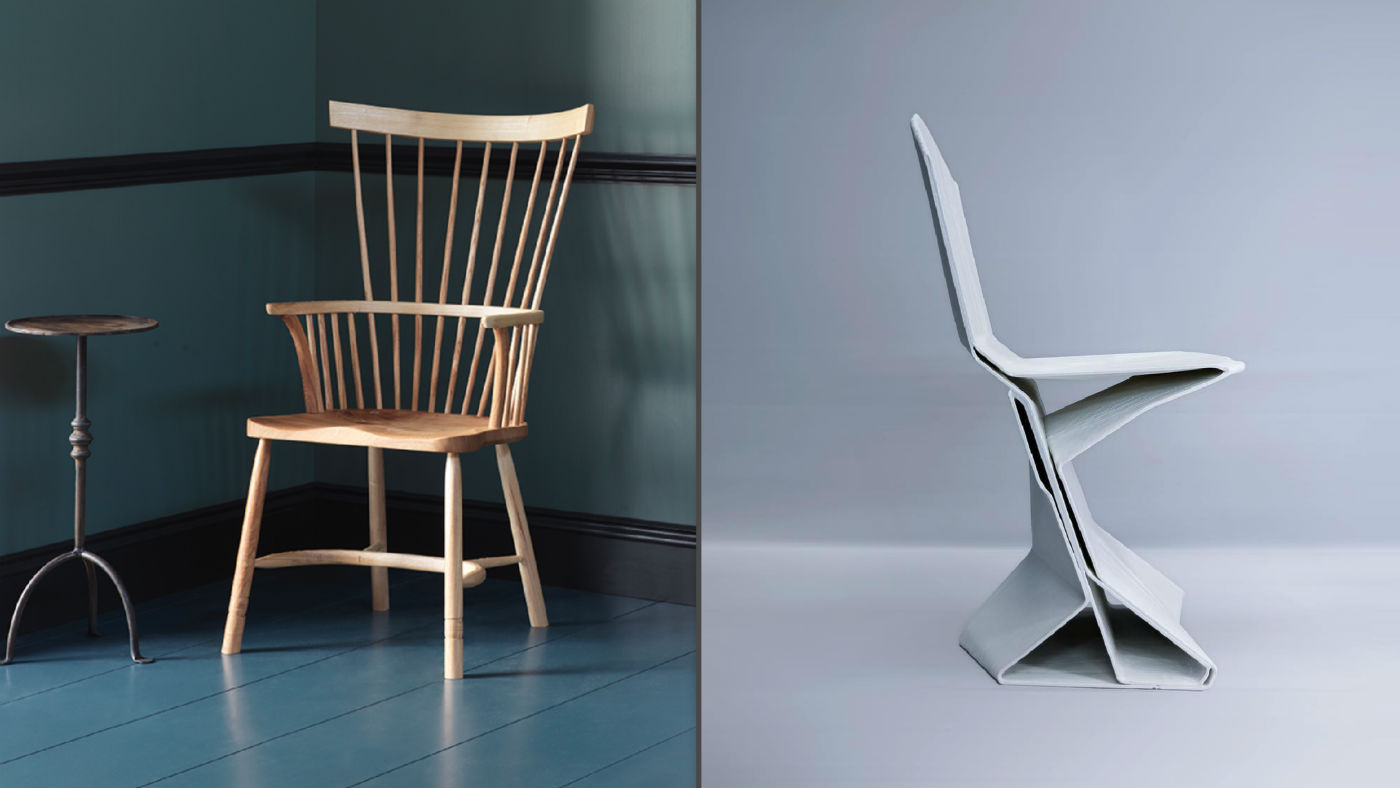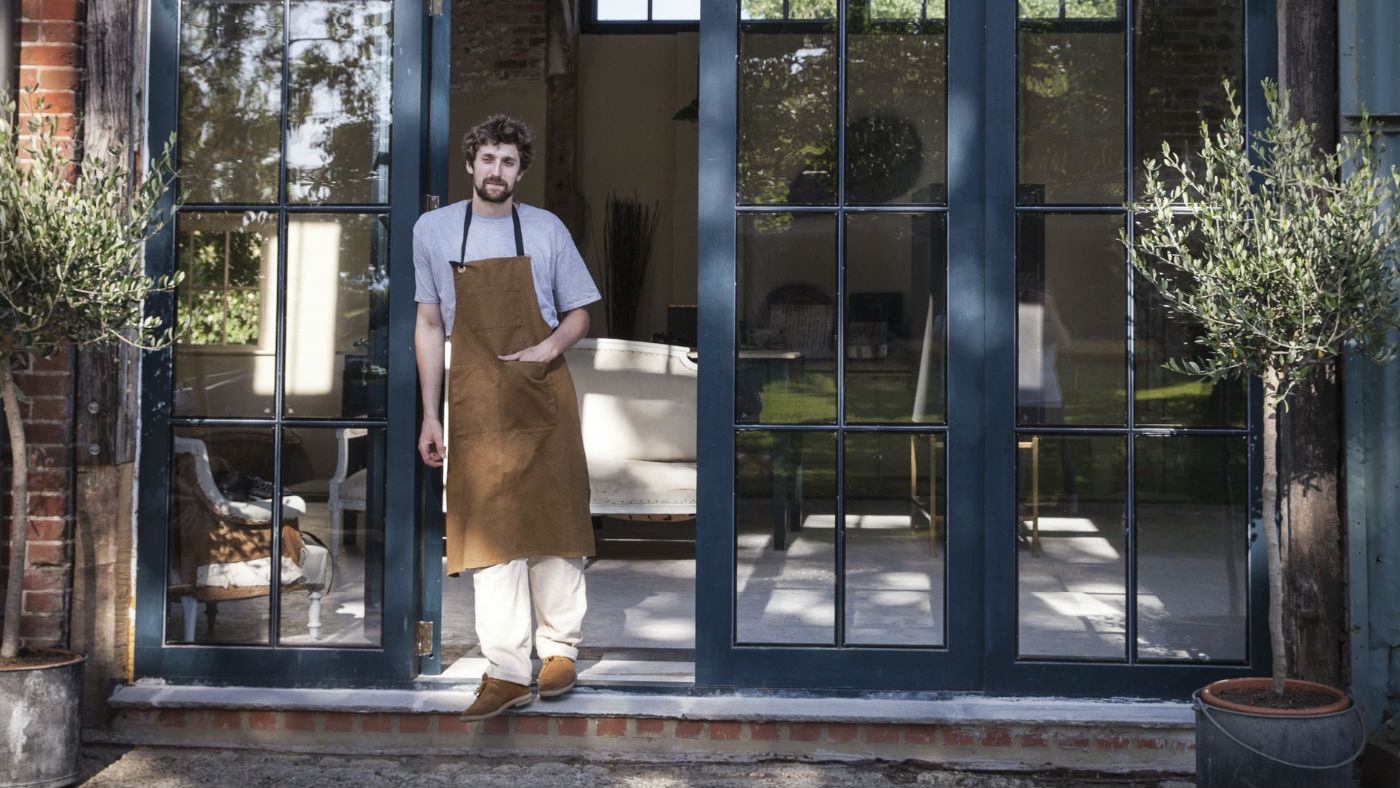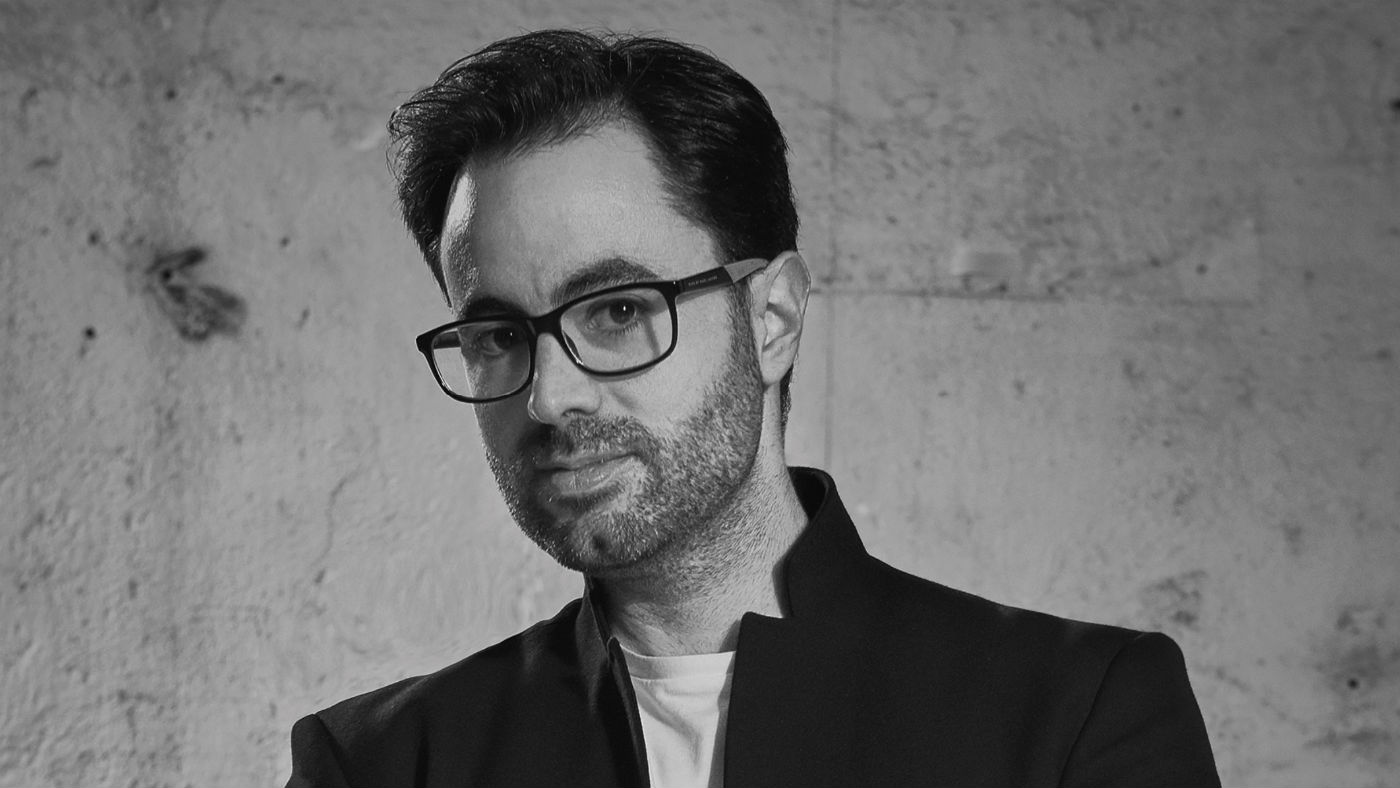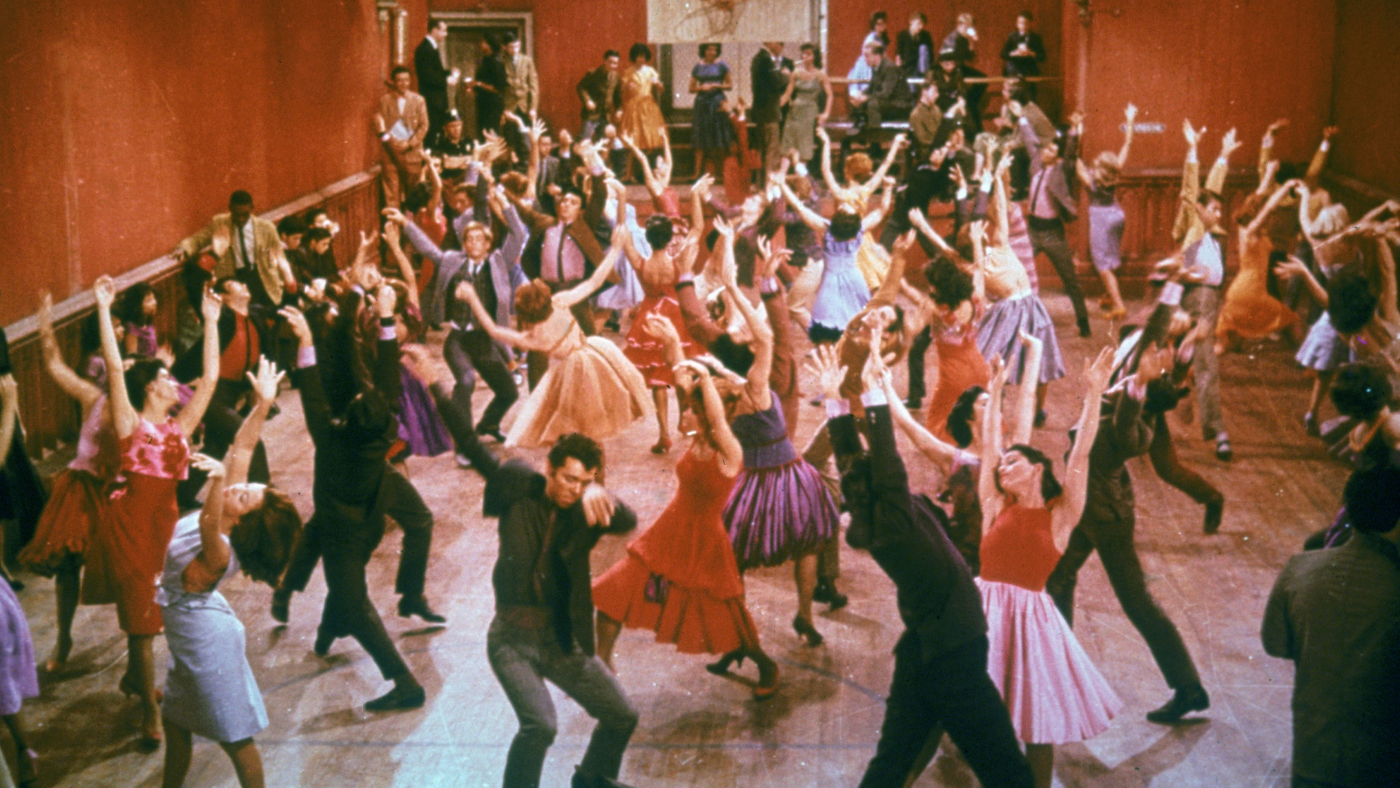Design: the artisan and the automator
Rory Stride and Manuel Jiminéz García discuss their design philosophies

A free daily email with the biggest news stories of the day – and the best features from TheWeek.com
You are now subscribed
Your newsletter sign-up was successful
Do you like your design slow or fast? Traditional techniques or cutting-edge technology? Both are equally relevant today, as these two very different masters of their craft reveal.

‘I’d probably be fired from a commercial workshop. Everything I do takes hours’
Rory Stride grew up surrounded by beautiful pieces of furniture due to his parents’ family business, Stride & Son, a Chichester auction house. After an apprenticeship with local furniture maker Ted Jefferis of TedWood, he began Stride & Co in 2017 making handmade furniture from an old grain barn in Sussex. His furniture has been bought by private clients, interior designers like Christopher Howe and organisations like Soho House.
The Week
Escape your echo chamber. Get the facts behind the news, plus analysis from multiple perspectives.

Sign up for The Week's Free Newsletters
From our morning news briefing to a weekly Good News Newsletter, get the best of The Week delivered directly to your inbox.
From our morning news briefing to a weekly Good News Newsletter, get the best of The Week delivered directly to your inbox.
“I’ve always made things by hand - I started making speaker cabinets when I was 15. I like the pace of it – working with wood is slow and considered. Nothing can be rushed. You’re working to fine tolerances and finesses. You have to think of the right joints, using the right cut of wood.
“The responsibility of working with wood is something I take very seriously. It’s a contradiction because I really really love trees – and if something has that much beauty when it’s standing in a field, you really have to think about what you’re going to make – is it beautiful, is it functional, and will it last? You owe it to a 250-year-old oak tree to try to do your best by it.
“I’m trying to make something that will last. There’s a lot of fast fashion in the interiors world. When I come to London, I see perfectly good kitchens being ripped out and burnt after five years’ use – I don’t want to be part of that. My furniture is neither in fashion nor out of it, and it’s freestanding so it can be treasured and passed down.
“I don’t draw designs. I have an idea in my head, and you need to see and feel the piece come together in front of your eyes. It’s a process of discovery. You might miss a trick and stifle the end product if you’re too committed to a particular design.
A free daily email with the biggest news stories of the day – and the best features from TheWeek.com
“I’d probably be fired from most commercial workshops – everything I do takes so many hours. I live one minute from my workshop. I get in, have a cup of tea, light the woodburner, have another cup of tea… I have perhaps four pieces on the go at any one time. I’ll work the morning on one, then when I reach a natural break such as waiting for glue to dry, I’ll hop onto another.”

‘Designing at faster speeds will force us to become more economical with materials’
Manuel Jiménez García is the co-founder of madMdesign, a computational design practice based in London, and co-founder of robotic manufacturing startup Nagami, based in Avila, Spain. His work has been exhibited in Paris’s Centre Pompidou, London’s Victoria & Albert Museum, the Royal Academy of Arts and the Zaha Hadid Design Gallery. He’s also professor at UCL’s Bartlett School of Architecture in London.
“I’ve always been a bit against tradition, but that’s not the only reason I was attracted to robotic 3D printing. Technology can really help in making things faster and cleaner to produce, reduce waste, be better for the environment and safer – I mean, we’re still hanging people off great heights to build skyscrapers!
“We made a small robot first which could only do a chair. But it was useful for investigating how we’d make bigger pieces for architectural projects. Now we can build a house just using three pieces of 3D-printed material. There’s always been a link between furniture and architectural design – think of Gaudi or Le Corbusier.
“It’s basically a robot holding a tube of toothpaste and squeezing it, depositing the material in layers. The Voxel chair (commissioned by Paris’s Pompidou Centre) was made out of a 2.4km continuous line of plastic. It led us to start our design company Nagami and use the tech for commercial applications like The Nobu chair and the Nital vase.
“This technology has been around for a long time – most people have seen a desktop 3D printer. But working on a larger scale is what makes our technology unique. Most large 3D printed objects are a slow process – but we’ve optimised it so we can make a chair in 31/2 hours and charge €940 for it, where previously it would have taken days and cost €20,000.
“Designing and building at faster speeds will force us to be more economical with the use of materials and resources, while still being efficient. I strongly believe that these processes will not only allow us to design differently, but also to materialise schemes which we thought were out of our reach as an industry.”
-
 Local elections 2026: where are they and who is expected to win?
Local elections 2026: where are they and who is expected to win?The Explainer Labour is braced for heavy losses and U-turn on postponing some council elections hasn’t helped the party’s prospects
-
 6 of the world’s most accessible destinations
6 of the world’s most accessible destinationsThe Week Recommends Experience all of Berlin, Singapore and Sydney
-
 How the FCC’s ‘equal time’ rule works
How the FCC’s ‘equal time’ rule worksIn the Spotlight The law is at the heart of the Colbert-CBS conflict
-
 Sport on TV guide: Christmas 2022 and New Year listings
Sport on TV guide: Christmas 2022 and New Year listingsSpeed Read Enjoy a feast of sporting action with football, darts, rugby union, racing, NFL and NBA
-
 House of the Dragon: what to expect from the Game of Thrones prequel
House of the Dragon: what to expect from the Game of Thrones prequelSpeed Read Ten-part series, set 200 years before GoT, will show the incestuous decline of Targaryen
-
 One in 20 young Americans identify as trans or non-binary
One in 20 young Americans identify as trans or non-binarySpeed Read New research suggests that 44% of US adults know someone who is transgender
-
 The Turner Prize 2022: a ‘vintage’ shortlist?
The Turner Prize 2022: a ‘vintage’ shortlist?Speed Read All four artists look towards ‘growth, revival and reinvention’ in their work
-
 What’s on TV this Christmas? The best holiday television
What’s on TV this Christmas? The best holiday televisionSpeed Read From films and documentaries to musicals for all the family
-
 Coco vision: up close to Chanel opticals
Coco vision: up close to Chanel opticalsSpeed Read Parisian luxury house adds opticals to digital offering
-
 Abba returns: how the Swedish supergroup and their ‘Abba-tars’ are taking a chance on a reunion
Abba returns: how the Swedish supergroup and their ‘Abba-tars’ are taking a chance on a reunionSpeed Read From next May, digital avatars of the foursome will be performing concerts in east London
-
 ‘Turning down her smut setting’: how Nigella Lawson is cleaning up her recipes
‘Turning down her smut setting’: how Nigella Lawson is cleaning up her recipesSpeed Read Last week, the TV cook announced she was axing the word ‘slut’ from her recipe for Slut Red Raspberries in Chardonnay Jelly